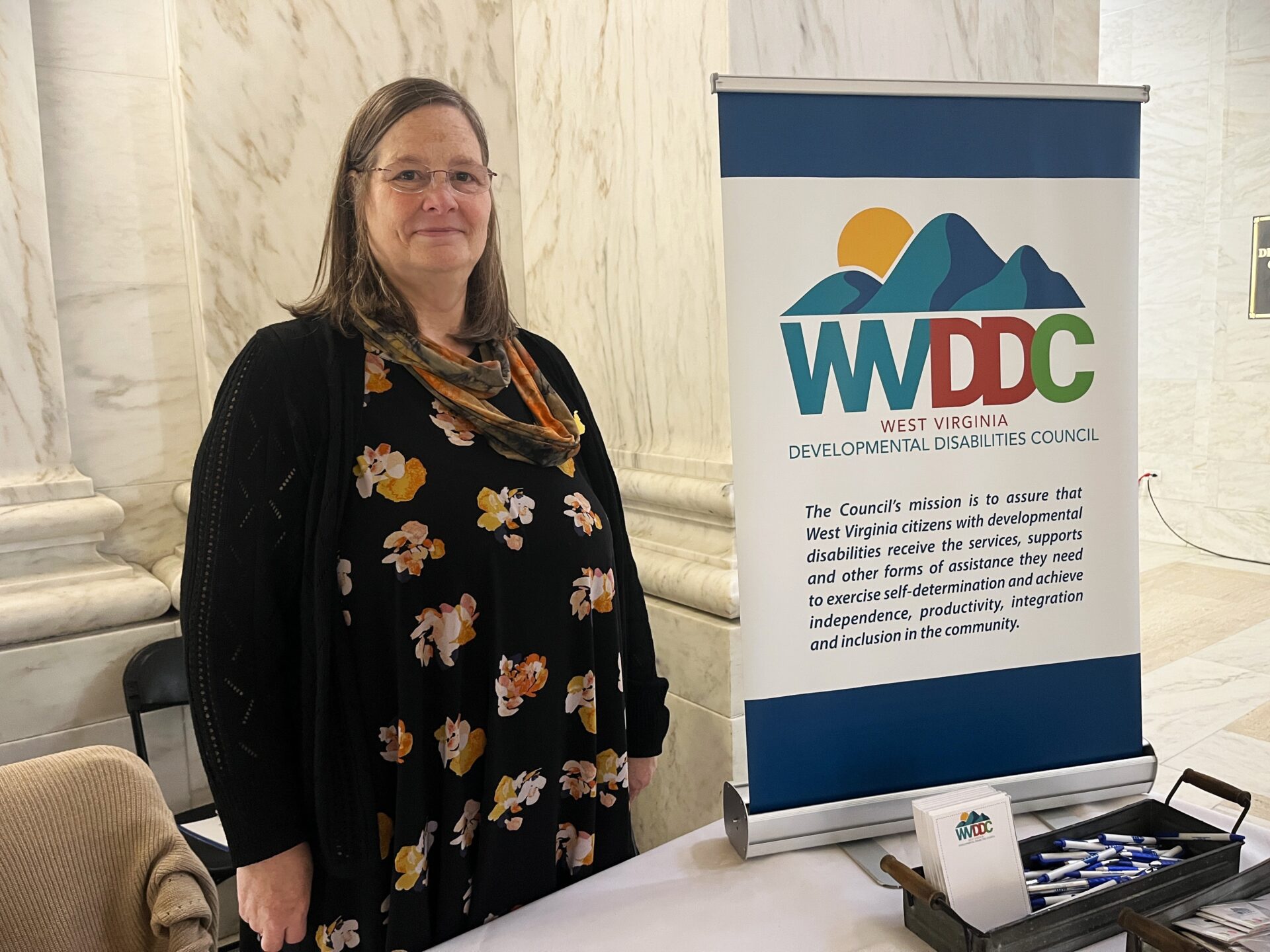West Virginia is home to 13 publicly funded behavioral health centers, run through the West Virginia Department of Human Services. Located across the state, these facilities provide things like at-home care, counseling and crisis support to residents with disabilities.
But the United States is currently facing a shortage in its health care workforce, and West Virginia is no exception. Nursing jobs in the state had a vacancy rate of nearly 20% last year, and a majority of the state’s 55 counties are medically underserved, according to a 2024 report from West Virginia University.
Tina Wiseman is executive director of the West Virginia Developmental Disabilities Council (WVDDC). She said the shortage has spelled trouble for the state’s behavioral health centers, which play an important role in providing long-term support to folks with disabilities.
“Everywhere there [are] workforce issues. But those programs would really benefit from increasing wages, more standardized training, more oversight by middle management,” she said. “Making sure that people with developmental disabilities aren’t institutionalized and lose their rights.”
The WVDDC is federally funded, and every U.S. state and territory has its own version of the council, as required by the federal Developmental Disabilities Act.
“Our main goal is to advocate for people with developmental disabilities, to make sure their rights are protected, to provide education and technical support to policymakers and lawmakers about what the big issues for people with developmental disabilities [are],” Wiseman said.
Wiseman acknowledged that state spending might be constrained by a projected budget shortfall this year. In January, Gov. Patrick Morrisey estimated that the state would face a budgetary deficit of $400 million this coming fiscal year, and said he expects it to grow in the years ahead.
Still, Wiseman said investing in behavioral resource centers, and programs that support residents with disabilities broadly, should not be looked at as a simple expense. She said these services also help residents with disabilities live independently, uplift their communities and rely less on state services, reducing costs to the state.
“It’s a needed investment, and they have payoff,” Wiseman said. “It is, on average, cheaper than any institutional facility if you invest in people with disabilities living in their communities, invest in supporting them to get jobs.”
Wiseman visited the State Capitol Wednesday as part of Disability Advocacy Week, an annual awareness campaign where advocates from across West Virginia come to Charleston to speak with residents, lawmakers and lobbyists about the needs of residents with disabilities.
On Tuesday, advocates raised awareness about West Virginia’s state use program, which helps residents with disabilities find employment by prioritizing them in the hiring process for certain state-requested jobs, like janitorial work and mail processing.
Wiseman said a better behavioral network for the state could spill over into improving other areas of policy concern. During this year’s legislative session, state lawmakers have expressed concern over reports of violence against school teachers from some students, and difficulties enforcing student discipline policies in local school systems.
The causes of school discipline issues run the gamut. But for students with mental health issues or developmental disabilities, Wiseman said more robust behavioral health care could turn a disciplinary problem into a chance for a child or teen to get the health support they need.
“Sometimes, kids just need someone that can maybe take them out of that classroom environment, maybe take them on a walk,” she said. “Just do some talking to them. It gives everyone in the classroom a little bit of a break to kind of reset. It gives the teacher time to reset. And it gives that student time to just calm down, refocus and then go back into the classroom.”
Wiseman feels that providing students support can be more effective than punitive responses to discipline violations.
“A lot of those things are things that really should be dealt with in that manner, as opposed to in-school or out-of-school suspension,” she said.
While investing in mental and behavioral health resources comes with a price tag, Wiseman said it also cuts costs in other areas. She believes that pays off in the long run, especially when it means helping residents find jobs that make them feel both fulfilled and financially independent.
“It all comes around full circle, supporting that community. The more people we can get in the workforce, the better,” she said. “I mean, it’s a win-win.”
